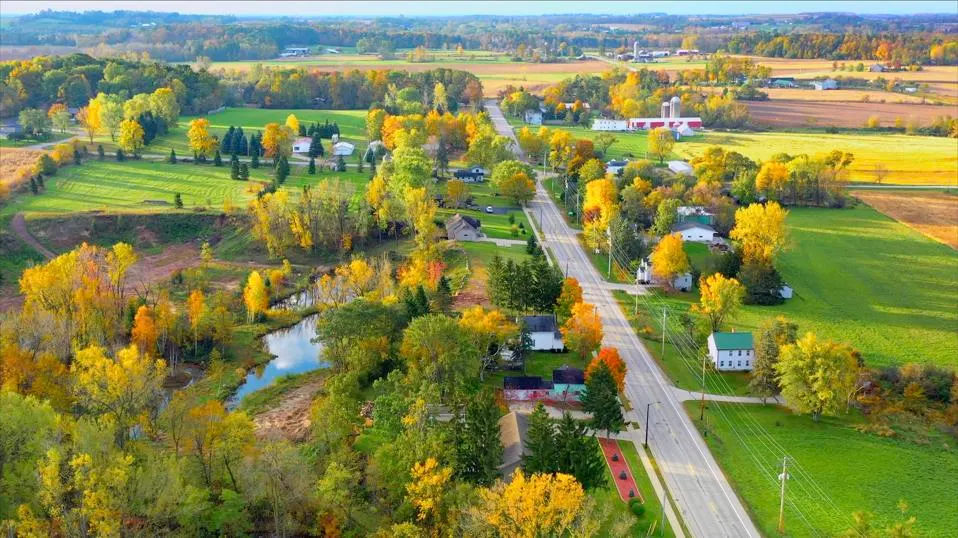What You Need to Know Before Moving to a Small Town

The attraction of a more peaceful, slower-paced life is drawing many away from the hustle and bustle of urban centers to the peaceful embrace of small towns. As remote work has increased flexibility and as many want to be closer to nature, an increasing number of Americans are leaving the big cities behind in pursuit of a quieter existence. In fact, many people have been moving away from populous metropolitan places even before the pandemic started. The Economic Innovation Group, in its report of 2021, shows that more than two-thirds of large urban counties faced a decline in population, and over 800,000 people have left their cities by 2023.
There are several essential considerations for people who have plans to relocate to small towns that will shape one's experience: For example, real estate agents like Bill Golden, who is a realtor in Atlanta, have seen firsthand the shift. He has had many clients who became tired of the hustle and bustle of the big city and wanted more inexpensive, peaceful living in smaller towns. They often discovered they could buy much larger houses at a fraction of the cost compared to those cities. For instance, one of Golden's clients was an empty-nester couple who moved to a small town where they could buy a large Victorian home at a reasonable price, even opening up a small boutique in the area. This way, they could enjoy life in a smaller community while maintaining a pied-à-terre in the city to see doctors and attend cultural events.
The cost of living in towns is often much cheaper compared to metropolitan cities. According to moving expert Chuva Davaatogtokh, for instance, a similar property in the countryside typically costs less than it does in the city, while utilities like water might actually come from a well instead of the municipal supply, adding to the reduction of a monthly expense. However, it could be more expensive depending on which town. For small towns especially located near major cities or any tourist destination, it would be priced out of the market because some second-home buyers or remote workers just keep on increasing the prices of real estate. In some ways, small-town living is no longer what one might expect it to be affordable.
Apart from being affordable in homes, the peacefulness and privacy experienced there rarely happen in such a small portion in urban environments. With increased property space, the noise from neighbors and city traffic is reduced. Most probably, your backyard is scenic with a view of forests, mountains, or rivers. There is also a perfect backdrop for stargazing: the night skies, without city pollution lights. Nature enthusiasts will enjoy the proximity to national parks, hiking trails, or lakes, which increases the opportunities for outdoor recreations. This connection to nature is one of the most enticing aspects of small-town living.
Reality in a small town, however, does not always mirror that idealized version that some city dwellers may perceive. One common stereotype exists that everyone in a small town knows everyone's business. While some gossip may indeed exist, Tyler Forte, a real estate broker in Nashville, Tennessee, relates that most small-town residents keep to themselves. People are friendly but respect one another's privacy. Small towns, however, have a social dynamic unique to their environment. Relationships in small towns often are built on trust. Many small towns have the "good ol' boys club" mentality, which means that success in business may be based on who you know rather than pure competition.
A strong sense of community is a big advantage in small towns. Friends assist each other with baked goods or organizing potlucks in the neighborhood, or any other event such as fairs held by the local county. It is because of these get-to-gathers that people find more ease in getting close friends. While social opportunities that include theaters, museums, or clubs are scarce, sometimes you'll find other routes to being involved, joining a gardening group, joining a church, or sports team of the local areas.
Rural living definitely has its downsides: for instance, the technology aspect is underdeveloped and, therefore, can be quite rudimentary. Golden says that part of rural life is where high-speed internet often lags behind; it's an almost critical aspect for remote workers. Although SpaceX has enhanced internet accessibility in several rural areas, it has its price of $120 per month with an extra fee for the equipment. Besides, a lack of health care facilities is an issue. There are mostly fewer medical centers in many small towns. In several areas, a person may be forced to travel long distances to attain a hospital. This lack of accessible healthcare, combined with the absence of specialized medical personnel in rural settings, is a turn-off for some.
Other practical considerations of life in a small town may be adaptation. According to Davaatogtokh, grocery stores in rural areas can be far and few between, and dining options might be limited to a diner or a local pizza place. Social opportunities may be scarce, and you may have to put in more effort to remain active in the community. You may also find challenges in your daily activities because of weather conditions; snowstorms may make it impossible to drive on some roads, requiring a 4WD vehicle to access your home. There will also be different insurance needs; in rural homes, for example, you may require different coverage depending on how much land you have or whether you need a back-up sewage and drainage system.
He suggests before making a decision, to go see some of the small towns during various times of the year. Get a feel for the area by speaking with the locals, attending events, and getting a sense whether the lifestyle fits your needs and expectations. Small-town living has a lot of positive aspects but comes with different challenges as well. If you’re well-prepared for the changes, small-town living can provide a fulfilling and peaceful lifestyle, away from the hustle of city life.



